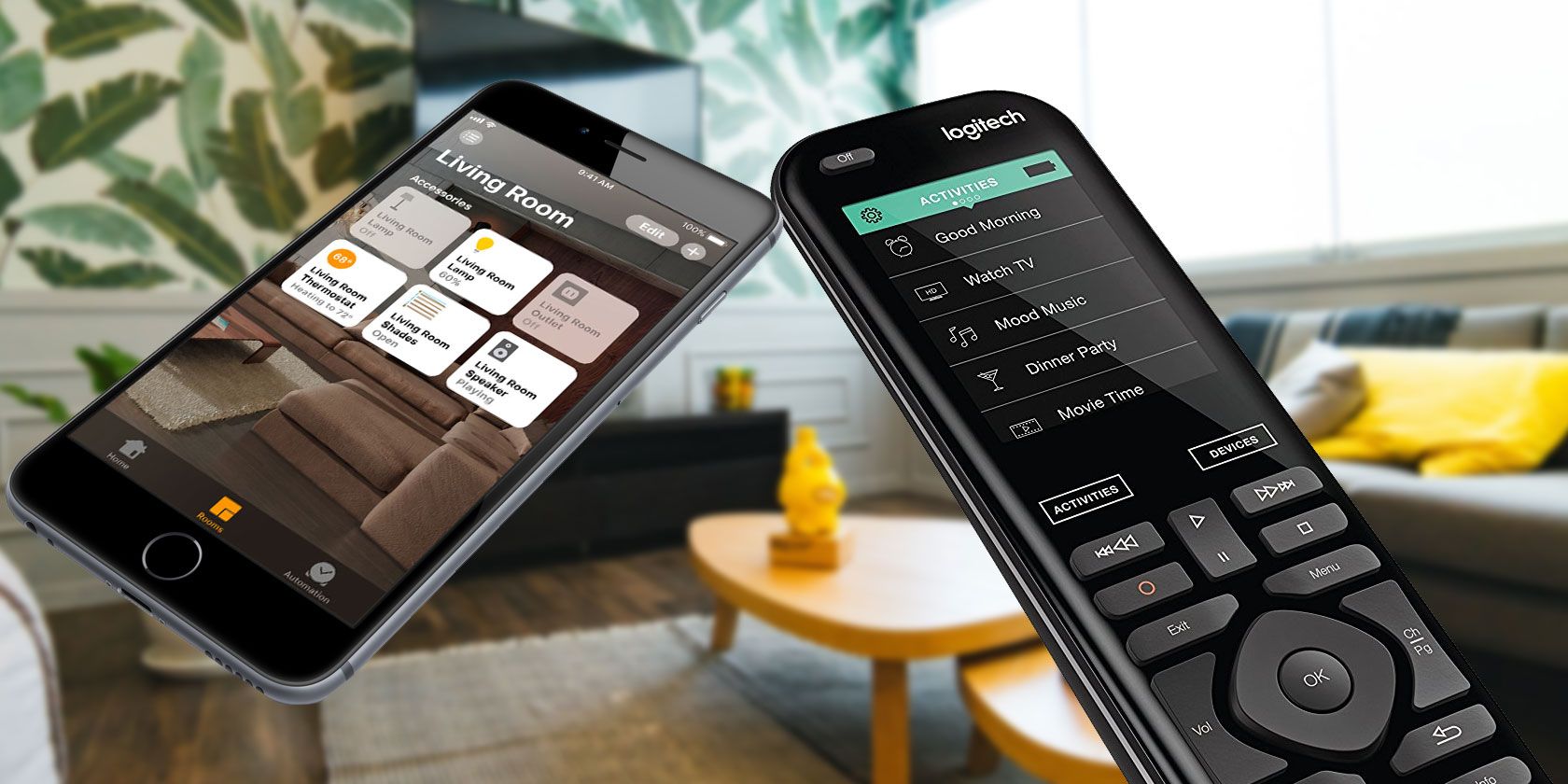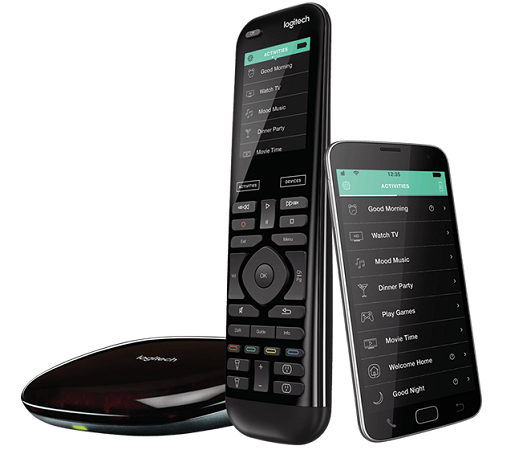How many remote controls do you have in your lounge? One for the TV, your cable service, the Hi-Fi, your media streaming device, your games console, the air conditioning unit... the list is endless. These days, almost every tech device we buy seems to come with a remote.
The situation has gotten so out of hand that recent years have seen an explosion in universal remotes. Manufacturers claim they can replace your sea of existing remotes with a single device. On paper, they can control everything from your smart lighting to your wireless speakers.
But are they the best thing for a smart home? Can your phone perform the same function? Let's look at how your phone compares with a universal remote when it comes to controlling a smart home.
Round 1: Cost
We've looked at some of the best universal remote controls in an article elsewhere on the site.
Although you can always find cheaper options, a top-end remote such as the Logitech Harmony Elite will set you back several hundred dollars if you buy it through Logitech's website (though you can often find lower prices on Amazon).
Of course, a flagship mobile handset from Samsung or Apple will be more than twice that amount, but it's almost certainly something you already have. It's not a new expense to absorb.
And, unlike a universal remote, a phone is something you will continually upgrade into the future. You're probably never more than a couple of years from a new handset. How often will you replace a remote control?
Winner? Smartphone.
Round 2: Convenience
Universal remotes are infinitely more convenient. Device-specific phone apps work efficiently, but require time to open and navigate.
And if you're trying to operate several devices in quick succession, phones are impractical. You'll be exposing yourself to endless app hopping. The more smart devices you have installed in your home, the more apps you'll need!
Universal remotes, on the other hand, are much faster and more streamlined. You can jump between different devices at the literal push of a button.
Winner? Universal remote control.
Round 3: Manufacturer Support
Universal remotes leave you at the mercy of the manufacturer.
You're relying on the company to a) add support for new smart home gadgets as they become available, b) keep your device's firmware and user interface up-to-date, and c) continue to support the device.
You might think the final point is ridiculous. After all, a universal remote manufacturer would never knowingly brick a fully-functional device, right?
Well, yes, they would. In November 2017, Logitech abruptly announced it was suspending "service and support" for its Harmony Link remote system. And the reason? Logitech decided not to renew a "technology certificate license" which was due to expire in March 2018.
Logitech offered a 35-percent discount on its Harmony Hub to its affected users. Sounds generous, but take a step back and you'll realize Logitech's response is akin to "Yes, we've screwed you over. Now give us some more money". Ultimately, the company made a not-insignificant profit from ending the support.
Of course, the Logitech story is just one example, but it raises an important point. You never know when your fancy universal remote system will suddenly stop working.
Winner? Smartphone.
Round 4: Battery Life
No phones have good battery life. It doesn't matter whether you're using the latest Apple release or a cheap Android handset from China, your battery will struggle to make it through the day.
If you're using your phone as a universal remote, the battery is going to drain even faster. You'll be lucky if your phone has got any juice left by mid-afternoon.
Of course, there's also a practical side to this problem. If your phone is dead and you don't have your charger to hand, you'll be left in an awkward position where you're unable to operate your smart home devices at all.
Winner? Universal remote control.
Round 5: Supported Smart Home Gadgets
No universal remote can work with every smart home device in existence. There are too many protocols, proprietary apps, and complicated usage cases for it to be possible.
High-end models will work with the most common smart home brands. For example, the Logitech Harmony is compatible with Sonos, Amazon Alexa, Nest, Philips Hue, Lutron, and a whole lot more. But it doesn't work with August smart locks. Or any smart security cameras. Or your smoke detectors. Or glass break sensors. Or...
And in the cases where your universal remote is incompatible with your smart home devices, what will you turn to instead? Your smartphone.
Almost every smart home device has an accompanying app. August locks and Wi-Fi security systems definitely have one. They'll let you secure your doors or watch your security cameras from the comfort of your sofa. Both of which are features you feel a universal remote should offer.
Winner? Smartphone.
Round 6: Alexa Skills, Playlists, IFTTT Recipes
Universal remotes are fine for turning gadgets on and off, or for playing a particular song on your speaker system. But they're not suitable for managing your devices on a more granular level.
For example, you can't install a new Alexa skill from your universal remote. And you can't create a new playlist on Spotify. Or connect two gadgets in an IFTTT recipe. The list goes on.
Here's a challenge. If you have a universal remote, use the comments section at the end of this article to name one thing it can do which your smartphone is incapable of. I promise you'll struggle to think of anything.
Tellingly, universal remote manufacturers seem to be well-aware of this uncomfortable truth. Both the NEEO and Logitech smart remotes come with a smartphone app that can precisely duplicate the function of the physical remote.
Of course, you need the physical control to be able to log into the app, but the underlying technology is almost identical.
To perform these tasks, you either need to head to the device's respective web portal, or use---you guessed it---your smartphone.
Winner? Smartphone.
Round 7: Privacy
The nature of phones means we get a lot of messages, notifications, and alerts that aren't meant for other people's eyes.
But if your phone becomes the primary way to control smart devices in your home, your friends and family will constantly have access to your private digital life.
You can negate the issue by using an old phone as the remote, but many people won't do so.
Winner? Universal remote control.
Do You Use a Universal Remote or Your Phone?
We've tried to present both sides of the argument. Much of the decision comes down to which pros and cons are important to you, and the set up of your smart home.
Do you think a universal remote or a phone is the best way to control your smart home? Which do you use?


